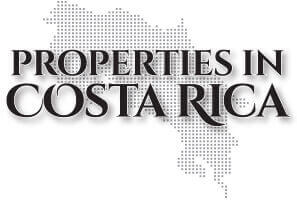Voluntary Property Limitations can be a Great Tool in Costa Rica
Search Your Property
This article discloses the existence of three very little-used and little-known legal tools, but which can constitute very valuable tools in certain cases, all in order to protect, guarantee rights in favor of third parties and avoid possible garnishments or unwanted transfers, all in relation to real estate property. These tools are called Voluntary Limitations, Limitations in favor of third parties and Donation with non-seizure clause and non-transfer. Let’s see the details of each one.
Voluntarily Limitations: This tool is based on article 266 of the Civil Code, which establishes the following: “ARTICLE 266.- The property and each one of the special rights it comprises, have no limits other than those admitted by the owner and those imposed by provisions of the law”. This means that the legitimate owner of real estate property is allowed to impose voluntary restrictions, as long as they do not contradict current legal provisions. 2/3 A very common example is the Voluntary Immobilization According to this, the rightful owner is allowed to request the Real Estate Registry to immobilize the title of his or her property, so that no fraudulent transfer can be made. On this subject, you can consult the previous article (place link here to article named Property Fraud in Costa Rica Gains Major Steam due to COVID-19). It is even better to request a double immobilization, according to which once the first is removed, at least one month must elapse before the second is removed.
Limitations in favor of third parties: This tool has its regulation on article 269 of the Civil Code, which indicates: “ARTICLE 269.- Any limitation of property ownership in favor of one or more persons must be temporary and cannot be established for more than ninety-nine years. The non-temporary limitation in favor of a person makes such person co- owner of the property”. The question arises: why would a limitation be imposed in favor of another person?
Let’s look at a very interesting example. A person wants to make a donation in favor of a non-profit organization, which has a property where charity works are carried out, like taking care of minors in social disadvantage, taking care of elderly people in poverty conditions, taking care of abandoned animals and works of similar nature. But at the same time, whoever makes the donation does not want said property to be later sold or mortgaged for a specified period of time.
In that case, a document can be signed in front of a notary public, in which the representative of the non-profit organization constitutes a limitation in favor of the person who made the donation. There, the commitment is established not to transfer or mortgage the property in a specified period of time, which cannot exceed 10 years. Document will indicate that the limitation can only be removed until the agreed period of time has elapsed, or that the donor approves to remove them sooner. Donation with non-seizure clause and non-transfer. This third tool is regulated in articles 292 and 981 of the Civil Code. The first one provides that “It is allowed to establish limitations to the free disposition of property, only when they are transferred by gratuitous title. But they will not be valid for a period greater than ten years, except in the case of minor beneficiaries, in which this term can be extended until the beneficiary reaches twenty-five years of age”. Second article provides that “The non-seizure clauses are valid when they have been imposed in the terms and conditions of article 292”.
On many occasions, it happens that a person wishes to donate a property to his or her children, but under the condition that they cannot transfer it within a certain period of time. This period is for a maximum of 10 years. In the case of minors, the limitation can be established until they are twenty-five years old. Similarly, it can be provided that during that period of time the property cannot be seized by third party creditors of any kind, which provides better protection.
Based on the above, if any of the children who received the property as a donation incurs in some type of default due to non-payment of a debt, a credit card or is even responsible for causing an accident, regardless of the amount of the debt the ownership of the property received in donation will not be in jeopardy. If for any reason, a Court of Law orders to impose a lien for garnishment or similar, it can be requested that it gets removed based on said regulation. What is important is to ensure that the limitation is properly recorded by a professional who understands the process.
Well, here are these three legal possibilities to protect real estate property through Voluntary Limitations that can serve as a protective shield against claims from third parties. In all cases it is required that the limitations be duly recorded as a lien on the title. For this, it is necessary to request a lawyer-notary public to prepare the required documents and proceed with the required registration.
Author: Allan Garro was incorporated as a lawyer and public notary in 1996. He specializes in Litigation, Corporate, and Real Estate Law. He has also acted as an external legal consultant to Congress. He has been the author of more than 100 published English Language articles
